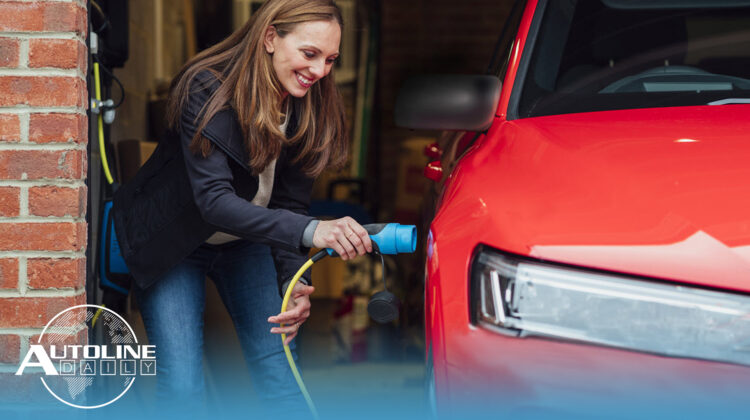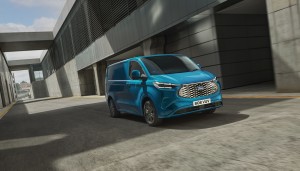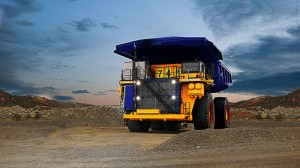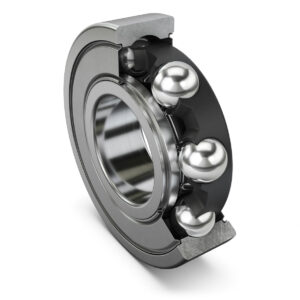
Listen to “AD #3320 – Rolling Blackouts Could Hurt EV Sales; EVs Caught in Culture Wars; Hybrid Battery Offers Spectacular Range” on Spreaker.
Follow us on social media:
Runtime: 11:17
0:07 Rolling Blackouts Could Hurt EV Sales
0:59 EVs Caught in Culture Wars
1:58 Tesla Employee Allegedly Steals Dojo Secrets
3:15 Ford Threatens Dealers with $25,000 Fine
4:09 Ford Intros Another E-Transit Model
4:55 Cadillac Starts Lyriq Production in China
5:14 World’s Biggest Hydrogen Mining Truck
5:53 AeroMobil to Make Passenger Flying Car
7:54 Parts Shortage Hits Trucking Industry
8:34 Schaeffler Bearing Increases EV Range
9:42 Hybrid Battery Offers Spectacular Range
Visit our sponsors to thank them for their support of Autoline Daily: Bridgestone, Intrepid Control Systems, MEDC and Schaeffler.
This is Autoline Daily, the show dedicated to enthusiasts of the global automotive industry.
ROLLING BLACKOUTS COULD HURT EV SALES
This does not bode well for sales of electric cars. Electric utilities in the United States are warning of rolling blackouts across the country this summer. They simply can’t keep up with demand. The Wall Street Journal reports part of the problem is that utilities are retiring old generating plants faster than they can be replaced with renewable energy. And the key bottleneck is the batteries needed for storing electricity generated by wind and solar. Rolling blackouts could scare the public about buying electric cars, even though the pumps at gas stations don’t work when the electricity is out, either. Some utilities say they’re going to keep older generating plants online until they can put renewables in place, but they still expect rolling blackouts.
EVs CAUGHT IN CULTURE WARS
The research company Escalent says that EVs are becoming more and more politicized in the U.S. It’s liberals versus conservatives and red versus blue. In 2020 Escalent found that 13% of conservative American voters thought that EVs are a “stupid idea” or “passing fad.” Now that’s grown to 18%. And people who generally consider themselves political conservatives shifted 7% more negatively on EVs. Meanwhile, liberals tend to strongly support EVs. So how do you break down the barriers and get more people interested in EVs? Escalent suggests that dealers should provide overnight test drives and get shoppers to talk to EV owners. It says that can break down barriers in ways that advertising and marketing just can’t do.
TESLA EMPLOYEE ALLEGEDLY STEALS DOJO SECRETS
Tesla is suing another former engineer for stealing proprietary information, this time related to its Dojo supercomputer. It’s a pretty big deal for Tesla. Dojo is the new supercomputer it’s developing to train the systems that are primarily used for its self-driving technology. The engineer was only hired in January and Tesla claims he even admitted to the stealing, but instead of returning the information, he provided a “dummy” laptop that made it look like he committed lesser offenses. Tesla has also sued engineers for stealing information related to its batteries, Autopilot source code and logistics systems.
FORD THREATENS DEALERS WITH $25,000 FINE
Ford is threatening its dealers with a $25,000 fine if they try to sell their demo of the electric Lightning too early. We already know Ford will stop allocating vehicles to dealers that overcharge for the all-electric truck, but it also doesn’t want those demos sold until there’s enough allocation of trucks. In the industry jargon, demos are also called mannequin units. These trucks are meant for customers to sit in, smell the new-car smell and take it for a test drive. So, if dealers sell a demo Lightning before its demo period is up, Ford will hit them with a $25,000 penalty, unless the dealer can replace it with another Lightning within 90 days. If not, that demo will be ineligible for any retail cash incentives and the dealer won’t get any future demo models.
FORD INTROS ANOTHER E-TRANSIT MODEL
Speaking of Ford and EVs, we were wrong the other day when we said this teaser might be the new E-Transit Connect for Europe. Viewers, like syxepop, were right when they said it’s the new E-Transit Custom. It will have on-board power for work tools, full towing capability and up to 380 kilometers or 236 miles of range, based on the WLTP cycle. That suggests it will have the same 67 kWh battery as the larger E-Transit, which has 350 kilometers of WLTP range. Production of the E-Transit Custom kicks off in Turkey in 2023.
CADILLAC LYRIQ STARTS PRODUCTION IN CHINA
At the same time that it’s ramping up production in the U.S., Cadillac announced it started pre-production of the Lyriq EV at its plant in Shanghai. It’s currently optimizing the manufacturing process and conducting reliability and validation tests before it begins mass producing the Lyriq.
WORLD’S FIRST HYDROGEN MINING TRUCKS
Hydrogen power keeps making progress. Anglo American, the mining company, unveiled the world’s largest hydrogen-powered mine haul truck. The prototype has a combined 2 megawatts of power and a payload of 290 metric tons. It will be used in a pilot test at one of Anglo’s mines in South Africa. The company says if it replaced all of its diesel powered trucks with the hydrogen ones, it could cut emissions by 80%. It will make hydrogen on-site using solar power.
AEROMOBIL TO MAKE PASSENGER FLYING CAR
Here’s a vehicle that looks like something from the Jetsons. It’s a flying car, called the AM 4.0, from startup company AeroMobil. The two-seat prototype is scheduled to come out in 2024 and was developed and designed in Slovakia. The structure is made out of carbon fiber-reinforced plastic and its propeller can fold into the fuselage when driving. It’s powered by a turbocharged engine that produces 300 horsepower. It has a top driving speed of 100 MPH and a flying cruise speed of 160 MPH. Its driving range is 320 miles and its flying range is 320 or 460 miles depending on the model. The company will manufacture the AM 4.0 in the U.S. starting next year and it will cost between $1.7 to $3 million. AeroMobil is also developing a second flying car called the AM Next, that can seat 4 people and is designed for a ride-hailing service that will launch in 2027.
PARTS SHORTAGE HITS TRUCKING INDUSTRY
Parts shortages aren’t just hurting automakers, it’s also impacting the trucking industry. The Wall Street Journal reports that heavy-duty truck makers can’t build enough to keep up with demand. According to market forecaster ACT Research, manufacturers have accepted 55% fewer orders so far this year, compared to a year ago. In 2019, truck makers in North America built nearly 345,000 trucks but last year it fell to about 265,000 and its expected to rise to 296,000 trucks this year.
SCHAEFFLER BEARING INCREASES EV RANGE
We tend to focus on better batteries or engines to improve the efficiency of cars, but even the smallest components can lend a hand. The supplier Schaeffler came out with a new bearing design for transmissions in ICE cars or for gear reduction units in BEVs. The bearings can cut CO2 by up to 0.3 grams per kilometer in an ICE vehicle, while in EVs they can save up to 30 watts per bearing and extend the driving range of the car by up to one percent. There are two basic types of ball bearings, open or sealed. Open bearings turn more freely, but they let dirt in. Sealed bearings keep the dirt out and last longer, but they generate more friction. So Schaeffler replaced the rubber seals on its sealed bearings with a metal disc that rotates freely. The disc keeps the dirt out, but has about 80% less friction than bearings with conventional seals. Schaeffler says this new bearing lasts twice as long as conventional sealed bearings.
HYBRID BATTERY OFFERS SPECTACULAR RANGE
There’s a new company, called Our Next Energy or ONE for short, that has an interesting new battery it’s developing. It’s what’s called a hybrid battery, meaning that it uses more than one cell chemistry within its pack. So, some cells might be better for fast charging, while others perform better in extreme weather. ONE is targeting range. So, it uses one chemistry that’s meant for everyday driving stuff, which is hard on the battery, and another chemistry that’s meant for light loads, which is good for cruising. In a recent test, ONE fitted its battery in a Tesla Model S and drove more than 750 miles on a single charge. CEO Mujeeb Ijaz tells Autoline he figures that 750 mile rated range would probably be good for 400 miles of real world range, which he thinks is the sweet spot for most buyers. And if you’d like to learn more about ONE, check out our interview we just did, like how it fit its massive over 200 kWh battery into that Model S.
But that brings us to the end of today’s show. Thanks for tuning in.
Thanks to our partner for embedding Autoline Daily on its website: WardsAuto.com
Seamus and Sean McElroy cover the latest news in the automotive industry for Autoline Daily.










